第100章
MEANWHILE Sallust and Glaucus were slowly strolling towards the house of Diomed. Despite the habits of his life, Sallust was not devoid of many estimable qualities. He would have been an active friend, a useful citizen--in short, an excellent man, if he had not taken it into his head to be a philosopher. Brought up in the schools in which Roman plagiarism worshipped the echo of Grecian wisdom, he had imbued himself with those doctrines by which the later Epicureans corrupted the simple maxims of their great master. He gave himself altogether up to pleasure, and imagined there was no sage like a boon companion. Still, however, he had a considerable degree of learning, wit, and good nature; and the hearty frankness of his very vices seemed like virtue itself beside the utter corruption of Clodius and the prostrate effeminacy of Lepidus; and therefore Glaucus liked him the best of his companions; and he, in turn, appreciating the nobler qualities of the Athenian, loved him almost as much as a cold muraena, or a bowl of the best Falernian.
'This is a vulgar old fellow, this Diomed,' said Sallust: 'but he has some good qualities--in his cellar!'
'And some charming ones--in his daughter.'
'True, Glaucus: but you are not much moved by them, methinks. I fancy Clodius is desirous to be your successor.'
'He is welcome. At the banquet of Julia's beauty, no guest, be sure, is considered a musca.'
'You are severe: but she has, indeed, something of the Corinthian about her--they will be well matched, after all! What good-natured fellows we are to associate with that gambling good-for-nought.'
'Pleasure unites strange varieties,' answered Glaucus. 'He amuses me...'
'And flatters--but then he pays himself well! He powders his praise with gold-dust.'
'You often hint that he plays unfairly--think you so really?'
'My dear Glaucus, a Roman noble has his dignity to keep up--dignity is very expensive--Clodius must cheat like a scoundrel, in order to live like a gentleman.'
'Ha ha!--well, of late I have renounced the dice. Ah! Sallust, when I am wedded to Ione, I trust I may yet redeem a youth of follies. We are both born for better things than those in which we sympathize now--born to render our worship in nobler temples than the stye of Epicurus.'
'Alas!' returned Sallust, in rather a melancholy tone, 'what do we know more than this--life is short--beyond the grave all is dark? There is no wisdom like that which says "enjoy".'
'By Bacchus! I doubt sometimes if we do enjoy the utmost of which life is capable.'
'I am a moderate man,' returned Sallust, 'and do not ask "the utmost". We are like malefactors, and intoxicate ourselves with wine and myrrh, as we stand on the brink of death; but, if we did not do so, the abyss would look very disagreeable. I own that I was inclined to be gloomy until I took so heartily to drinking--that is a new life, my Glaucus.'
'Yes! but it brings us next morning to a new death.'
'Why, the next morning is unpleasant, I own; but, then, if it were not so, one would never be inclined to read. I study betimes--because, by the gods!
I am generally unfit for anything else till noon.'
'Fie, Scythian!'
'Pshaw! the fate of Pentheus to him who denies Bacchus.'
'Well, Sallust, with all your faults, you are the best profligate I ever met: and verily, if I were in danger of life, you are the only man in all Italy who would stretch out a finger to save me.'
'Perhaps I should not, if it were in the middle of supper. But, in truth, we Italians are fearfully selfish.'
'So are all men who are not free,' said Glaucus, with a sigh. 'Freedom alone makes men sacrifice to each other.'
'Freedom, then, must be a very fatiguing thing to an Epicurean,' answered Sallust. 'But here we are at our host's.'
As Diomed's villa is one of the most considerable in point of size of any yet discovered at Pompeii, and is, moreover, built much according to the specific instructions for a suburban villa laid down by the Roman architect, it may not be uninteresting briefly to describe the plan of the apartments through which our visitors passed.
They entered, then, by the same small vestibule at which we have before been presented to the aged Medon, and passed at once into a colonnade, technically termed the peristyle; for the main difference between the suburban villa and the town mansion consisted in placing, in the first, the said colonnade in exactly the same place as that which in the town mansion was occupied by the atrium. In the centre of the peristyle was an open court, which contained the impluvium.
From this peristyle descended a staircase to the offices; another narrow passage on the opposite side communicated with a garden; various small apartments surrounded the colonnade, appropriated probably to country visitors. Another door to the left on entering communicated with a small triangular portico, which belonged to the baths; and behind was the wardrobe, in which were kept the vests of the holiday suits of the slaves, and, perhaps, of the master. Seventeen centuries afterwards were found those relics of ancient finery calcined and crumbling: kept longer, alas! than their thrifty lord foresaw.
Return we to the peristyle, and endeavor now to present to the reader a coup d'oeil of the whole suite of apartments, which immediately stretched before the steps of the visitors.